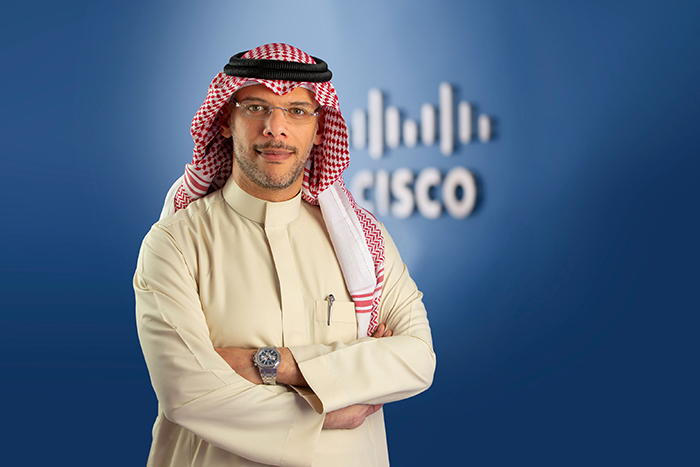A recent study conducted by Cisco (NASDAQ: CSCO) highlights a significant surge in the use of AI technologies in cybersecurity strategies among KSA organizations. The study indicates that 98% of companies surveyed are integrating AI in their security defenses, mainly in threat detection, response, and recovery.
The 2024 Cisco Cybersecurity Readiness Index was developed in an era defined by hyperconnectivity and a rapidly evolving threat landscape. Despite continuing to be targeted with a variety of techniques that range from phishing and ransomware to supply chain and social engineering attacks, companies today are actively attempting to fortify their defense. And while they are building defenses against these attacks, the complexity of their security postures, dominated by multiple-point solutions, presents a challenge in effectively thwarting these threats. This year, Cisco steered the Cybersecurity Readiness Index to highlight resilience in response to an evolving threat landscape.
The study shows confidence among Saudi companies in their ability to navigate through cyber threats, with 98% of Saudi companies reporting a moderate to a high level of confidence in their cyber defense capabilities. This confidence level highlights a significant awareness and proactive approach among Saudi enterprises regarding cybersecurity risks.
“As Saudi Arabia forges ahead with Vision 2030 of becoming a digital economy with extensive digital infrastructure developments, businesses need to be vigilant towards cyber-attacks,” said Salman Faqeeh, Managing Director of Cisco Saudi Arabia. ” To this end, both the Saudi government and the private sector are well aware of the risks and have significantly bolstered their cybersecurity strategies to address them. These ongoing efforts from both sides are vital for maintaining the Kingdom’s security and technological advancement, positioning Saudi Arabia as a secure and forward-thinking nation on the global stage.”
According to the index, 80% of KSA companies said they expect a cybersecurity incident to disrupt their business in the next 12 to 24 months, while 67% already experienced a cybersecurity incident. Incidents caused financial losses, ranging from USD $500,000 to $600,999 over the past 12 months. These losses affect organizational reputation, jeopardize long-term business viability, and underscore the pressing need for comprehensive security measures.
Remarkably, 99% of Saudi companies have seen an increase in their cybersecurity budgets in the last 12-24 months. Moreover, 39% of respondents witnessed an increase of over 30% in their budgets, and 52% of Saudi companies are spending more than 10% of their IT budgets on security, which reflects the growing awareness of the importance of cybersecurity in today’s digital world.
From a cyber talent point of view, there is a gap of 97% across KSA companies who believe that the shortage of cybersecurity talent is a major concern for their businesses. Furthermore, 59% of these companies have more than 10 cybersecurity positions unfilled, which is 10% higher than the global average. This shortage of skilled professionals affects the businesses’ ability to respond effectively to such threats.
The increase in budgets, the search for skilled professionals, the adoption of AI and other innovative security measures, deploying a security platform approach, and the growing awareness of the importance of cybersecurity indicate that the country is on the right track.
Despite this high level of confidence and the proactive steps being taken, there is still room for improvement. Saudi companies acknowledge the dynamic and ever-evolving nature of cyber threats and recognize that staying ahead of potential cybersecurity issues is a continuous process that requires ongoing adjustments and enhancements to their security measures.


COMMENTS